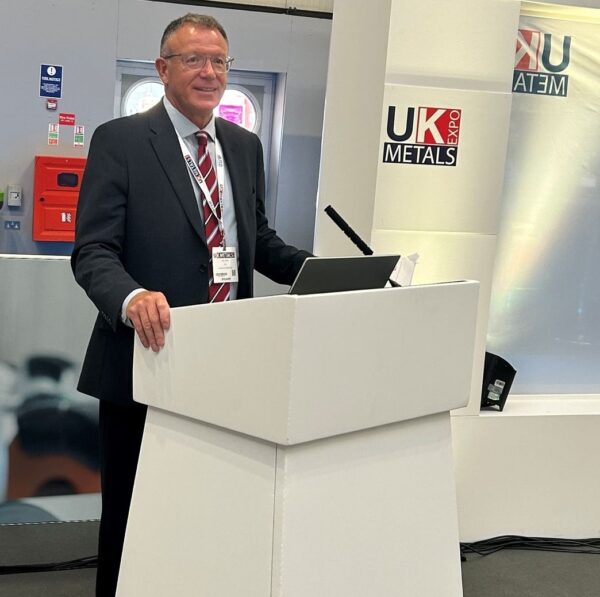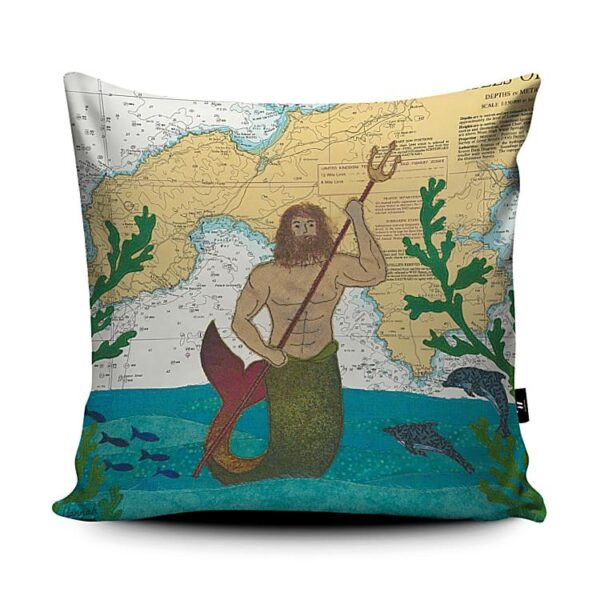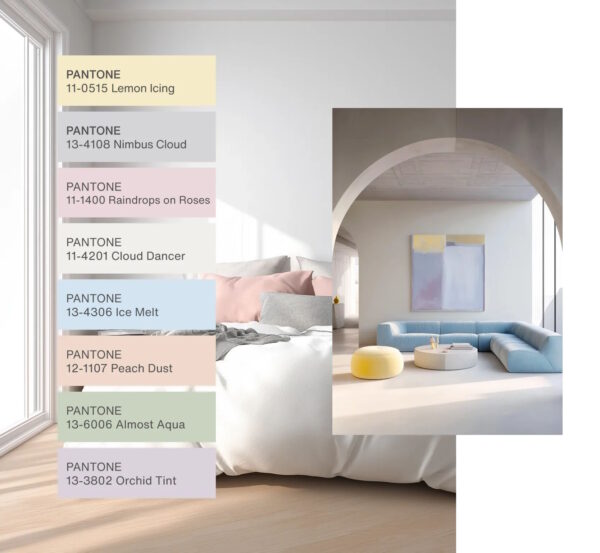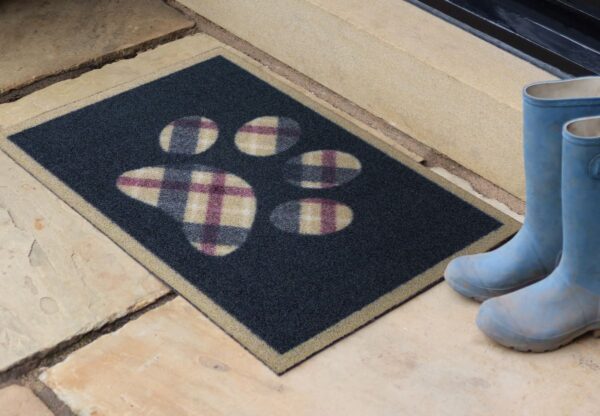Barbara Scott Customs Associates advises:
The Government is encouraging all businesses to get ready in case we leave the EU on 31st October with “No Deal”, ie without a withdrawal agreement which would allow a transitional period during which trading with the EU would remain as it is today. No Deal would mean that we would leave the EU Single Market in which goods currently trade without border controls and we would leave the customs union of the EU and Turkey. It would mean that all the EU legislation which currently controls UK trade, such as the Union Customs Code and the many free trade agreements that the EU has negotiated with other countries, would cease to apply and the UK will introduce its own customs and trade legislation.

There is a lot of information on Getting Ready for Brexit on www.gov.uk/brexit, although the difficulty is often trying to find what is relevant to your business. We hope this document will help you.
There are other tools that have been produced by the Government, many just signposts to their website (such as the radio and television adverts) but there are also email alerts, webinars and even a phone line (0300 3301 331) that businesses can use to help them prepare.
If you buy from or sell to the EU, you should already have carried out an initial analysis of your future customs obligations by looking at your contracts to determine the terms of trade and who is responsible for getting the goods out of one country and into the other. Many goods are sold “delivered duty paid” (DDP) within Europe, with the seller arranging delivery of the goods to the customer’s premises. This is not good practice when trading goods across international frontiers because it means that the supplier is not only responsible for getting the goods out of his country (exporting them) but is also responsible for taking the goods through the customs border and into the customer’s country: he is the importer in a foreign country and local processes and taxation rules apply.
If you have not already done so, you should review your contracts of purchase or sale and discuss with your EU suppliers/customers any changes to the terms of trade that will facilitate the customs clearance, especially on any DDP contracts.
You should also discuss with suppliers and customers their customs and transport requirements for a No Deal Brexit and discuss with your freight and haulage companies how your goods are going to be shipped through the borders. The following explains what you need to consider.
For exporting to the EU you will need to arrange for your shipper to make an export declaration on your behalf to enable the goods to be exported from the UK. He will need an invoice showing the sales price, the origin of the goods, the quantities and weight of the goods and the commodity (tariff) code. There will not be any special arrangements for exports so they must be declared to HMRC before the goods exit the UK. He will also need your EORI number – Economic Operator Registration and Identification number. If you did not have one before, HMRC will by now have issued you with an EORI, which is your VAT number followed by 000.
The EU will treat goods imported from the UK as they currently treat goods from any other country outside the Customs Union. An import declaration will be required and import duties and taxes will be payable.
The rates of duty that will be applicable to UK goods are those that currently apply to imports into the EU/UK from other countries, such as the US and China. These can be found in the UK Trade Tariff that is on the .Gov website or in the TARIC database on the EU Commission website:
For example:
Fine jewellery 2.5%
Imitation jewellery 4%
Candles 0%
Toys 0% or 4.7% depending on type/commodity code
Clothing Mostly 12% depending on type/commodity code
Handbags 2.7% to 9.7% depending on type/commodity code
Shoes Generally 8% or 17% depending on type/commodity code
Paper products Generally 0%
Plastic products 6.5%
Cosmetics Generally 0%
Ceramic kitchenware and tableware 5% to 12% depending on type / commodity code
The duty will be payable by the importer, so that is likely to mean that your customer will have the added costs of arranging for an import declaration to be made to his customs authority and he will have to pay import duty and, possibly, import VAT. While it is important for you to correctly classify your goods, it is the importer that is responsible for ensuring that he pays the correct amount of import duty.
If your customer refuses to be the importer, for example if your contract is to supply on DDP terms and they will not change it, then you will need to be the importer and find out what the process involves for the specific EU country (or countries) in which you will import. You will need an EU EORI because the EORI number issued by HMRC will no longer be recognised by the EU. You will also need to register for VAT in the EU country in which you will import as you will need to pay import VAT and then charge local VAT to your customer: you will need to submit VAT returns in that country too. We therefore recommend that you contact a local accountant/adviser to assist you with this (but our best advice is not to trade on these terms, although we appreciate that this is not always possible when you are negotiating with your customers).
The goods will either need to be declared to the EU customs authority where the goods first arrive in the EU, which is likely to be Calais for goods sent by truck either by ferry or through the tunnel, or they may move under transit arrangements for customs clearance at to a place within the EU, eg in the country where your customer resides. Plans for increased traffic have been put in place at Calais and the other ports in France, the Netherlands and Spain where additional customs clearance for UK goods will be required. But it is quite common for goods in the EU to move under transit arrangements so that customs clearance can take place at an inland destination, eg bonded premises owned by a haulier. It requires the shipper to be approved by his customs authority and for him to provide a bank guarantee to ensure the goods, on which duty and VAT are to be paid, reach their final destination.
If you are arranging the shipping to your customer, you will need to discuss with the carrier where and how the goods are going to be declared into free circulation in the EU.
The customs processes for exporting to the rest of the world (ROW) will not change. In fact, the same processes will apply to EU trade. However, a significant amount of UK trade with the ROW is currently carried out under the free trade agreements that the EU has negotiated with other countries. This enables goods of UK (EU) origin to be imported into those countries at a reduced, often nil, rate of duty provided you supply a valid EUR1 or other documentary evidence of preferential origin.
The Government has negotiated Continuity Agreements with a number of countries which means that UK exports can still have the benefits of those free trade arrangements if we leave the EU with No Deal. This includes goods exported to Switzerland, Norway, Tunisia, Israel, South Korea and other countries – a full list is on the .Gov website. However, we will not have any such arrangements with the EU, Turkey or Japan.
The UK will apply a Temporary Tariff for all imports from 1st November. These tariff rates will apply to imports from the EU or from anywhere else in the world. The majority of UK imports will be duty free and this includes:
Paper products, including packaging cards and wrap, plastic products, toys and games, ornamental ceramics, cosmetics, bags and shoes, candles, jewellery and gemstones.
However, duty will apply to some goods and this includes ceramic kitchenware and tableware and a lot of clothing.
The following duty rates will apply to ceramic kitchenware and tableware:
Porcelain and china: 12%
Common pottery: 5%
Fine pottery: 9%
Stoneware: 5.5%
Other ceramics: 7%
The duty rate on most clothing will either be 0% or 12%, depending on what it is and its tariff code. For example, dresses will be duty free but trousers and tee shirts will be subject to 12% duty.
Find out what duty rates will apply to your imports by checking the following here:
You will see that it is a rather large document and you will need to scroll down to page 828 to find the start of the actual Tariff Table.
These temporary tariff arrangements will be in place for up to a year (we hope that it will be for one year) from 1st November.
It is still not known if the UK will maintain the current levels of anti dumping duty (ADD) on certain goods. It has been announced that the UK will no longer apply the EU trade defence measures but would like to introduce its own measures where it considers that the prospect of dumping and unfair competition still applies – and this includes ceramic tableware and kitchenware from China. However, in compliance with WTO rules, the UK cannot apply any ADD measures on goods until it has reason to suspect that dumping of product onto the UK market is occurring, so it will need this evidence before it can impose any ADD or other trade defence measures.
VAT is payable at import on all goods – at the rate that normally applies (ie generally 20% but lower and zero rates apply to some goods). VAT registered traders can then recover the import VAT they have paid when they submit their next VAT return, using the statement (form C79) that HMRC sends to them. However, to assist businesses at this difficult time, the Government will introduce a system known as Postponed Accounting which will enable traders to simply account for the import VAT on their VAT return rather than actually pay it at importation.
Note that businesses that still wish to pay and reclaim import VAT as they do at present, may do so but using Postponed Accounting will significantly assist cashflow. When the goods are imported, you should tell your agent that you wish to use Postponed Accounting and he will show this on the import declaration (see below) by showing the Method of Payment as “G”. You will then be able to view an online statement showing what import VAT has been postponed: the details of where to find this statement have not yet been released by HMRC. The boxes on VAT returns will be altered and further guidance on how (and when) to account for the import VAT will, we hope, be issued soon.
Import duty is not payable on goods of a value of less than £135 and, currently, import VAT is not payable on goods that are less than £15. However, the UK will abolish this VAT system (known as Low Value Consignment Relief) and all goods will be subject to import VAT.
For packages up to £135, the liability to pay the import VAT switches to the sender of the goods overseas. He must either register with HMRC and make returns and payments or he can pay the import VAT to the carrier who will pay it to HMRC on his behalf. This is a radical new system and further details as to how it will work are still awaited. If the UK recipient of the goods is VAT registered, he may recover the import VAT provided he has an invoice or other evidence of the VAT that has been paid. But in cases of non-compliance, the liability for any outstanding debt to HMRC switches to the UK recipient of the goods.
If you regularly receive small consignments, from the EU or other countries, you should discuss this new scheme with your carrier and your suppliers.
An import declaration is required for each consignment arriving in the UK and it will generally be completed on behalf of the importer by a freight forwarder or customs agent. To complete the import declaration, the agent requires a copy of the invoice and packing list to show what the consignment contains and information such as the tariff code, the customs value, the origin of the goods (and whether any special tariff arrangements apply) plus any special information about the goods (eg see Inward Processing below).
From 1st November, all imports from the EU must be declared to HMRC. Goods arriving by air will be processed under normal customs arrangements: the HMRC system (CHIEF) has been upgraded to handle many more import (and export) declarations.
However, special arrangements are being put in place at the ports which handle RoRo traffic (trucks that roll on and roll off of ferries and trains). These ports, particularly Dover and the Tunnel terminal at Folkstone, are going to be under enormous pressure as they handle so much EU trade. Rather than make an import declaration to HMRC when the goods arrive, a new Transitional Simplified Procedure (TSP) can be used. It is not compulsory to use TSP but it can be used for all goods, including those that are “customs controlled” such as certain drugs, alcohol, fish and other specialist products. TSP enables the goods to be imported without a declaration being made to HMRC at the time but instead it is submitted by the 4th day of the following month.
Using the Transitional Simplified Procedure: To use TSP, the importer must be registered with HMRC: an agent cannot be registered on behalf of the importer. Only UK businesses may register, ie your supplier in the EU cannot register to import using TSP. On 14th October, HMRC announced that it would automatically register all VAT registered traders onto the TSP system.
By using TSP, your goods should be imported more quickly as there is no need for the lorry driver to stop and make an import declaration: he will just need your UK EORI and TSP numbers. However, if the truck is a consolidated load, TSP will only be of benefit if all traders whose goods are being imported use the system.
Assuming that your goods are not controlled, all you need to do when they are being sent to you, is keep a record, probably a spreadsheet, showing certain details about the goods. This record will need to tie up with the subsequent import declaration that is made. We are still awaiting further guidance from HMRC on the information that must be kept in this record but it includes the following:
• a unique reference number
• the date and time the goods arrived in the UK (it might be difficult to ascertain the exact time but you should ask the haulier for a rough idea)
• a description of the goods, the commodity code and quantity imported
• the purchase invoice number
• the customs value (this is the value of the goods plus the cost of the freight and any insurance, ie the CIF value)
• delivery details (name and address of the haulier)
• supplier emails (there should be a reference any information you have regarding the purchase and delivery of the goods)
• serial numbers of any certificates or licences where applicable
Having made this “entry in the trader’s record”, you must then engage a customs agent to make the import declaration on your behalf. You should ask the agent to provide you with a copy of the import declaration (C88) and acceptance advice (E2) and you should record the import entry number and date on your TSP account.
To use TSP, you will also need a Deferment Account if you have import duty to pay. This is an account, guaranteed by your bank, from which HMRC can take the import duties due by direct debit on the 15th day of the month following that in which the import declaration is made. However, while you should apply for a deferment account immediately, HMRC will allow you up to six months to put in place the financial guarantee for any duties that are payable. https://www.gov.uk/government/publications/apply-to-defer-payment-of-customs-duties-import-vat-and-excise-duties
Additionally, HMRC will allow up to six months for you to submit your import declarations for the goods you initially import under TSP, ie for imports in November, the declarations do not have to be submitted by the 4th December 2019 but, we understand, the 6th May 2020.
If you are going to import from the EU through Ro/Ro ports and your goods will be subject to import duty, apply a deferment account now.
You will only need an EU EORI if you are going to be the importer into or exporter from one of the EU27 countries, ie if you are making import or export declarations in the EU.
Intrastat declarations are needed at present to collect statistics on the UK’s trade with our European partners. But this information will in future be collected from the import and export declarations that are made for EU trade. As exporters will be making customs declarations for goods sent to the EU from 1st November, there will be no need for Intrastat declarations for EU sales. But importers will still need to continue to make Intrastat declarations for goods arriving from the EU, certainly for six months at least, as import declarations will not be made for goods initially imported under TSP.
Will there be any UK duty relief on goods imported that are exported to the EU? The simple answer is no although it is something on which we are lobbying HMRC to consider, eg for clothing wholesalers who will have to pay UK import duty on goods coming from the EU or Turkey which will then be re-exported (and liable to duty in the country of import). If the goods are subject to some “process” in the UK, and that can be anything from a manufacturing or assembly operation to simply repacking and labelling, then you can apply for an Inward Processing authorisation. An IP approval enables you to import the goods without payment of the import duty which is only payable on the goods that subsequently remain in the UK.
If you import goods for repair and re-export, you should apply for IP, even if your goods are not subject to import duty. This is because you cannot recover import VAT on goods you do not own.
As above, if you are engaging someone in the EU to process goods on your behalf, they should operate Inward processing so that they do not pay duty and VAT. If the goods are subject to UK import duty, you should operate Outward Processing Relief (OPR) so that you only pay duty on the cost of the overseas processing and not on the full value of the goods when they are reimported. Again, an application must be submitted to HMRC and you must be authorised before the goods are exported to enable you to benefit from the relief when the goods return to the UK.
All current authorisations and approvals, granted under EU customs legislation, will automatically be granted under the new UK customs legislation from 1st November. But any approvals that have been granted for use across the EU will no longer be recognised by HMRC or the customs authorities in the EU. Any applications currently with HMRC will become UK approvals if issued after 1st November.
Any BTIs (binding tariff rulings) issued by HMRC will still be valid in the UK, but not in any other Member State: they will be deleted from the EU BTI database and HMRC will open up a UK BTI database.
The rules of origin will not change but they may be applied differently by our EU partners. This will be most significant if you are supplying materials to an EU customer who uses your goods in manufacturing a product for export: he can no longer declare your materials as part of the EU origin of his finished product. This is a major issue for some industries (eg the motor industry) and further clarification is still awaited.
If you currently issue EU origin certificates or EUR 1 forms to your customers, these will change to UK forms: the Chambers of Commerce are ready to issue them as soon as they are given the green light.
Will it help me trade with the EU if I am an Authorised Economic Operator (AEO)? The answer is “no”. Once we have a trade deal with the EU, then mutual recognition of AEO authorisations issued by HMRC and AEO authorisations issued by the EU may be of benefit – but that is a long way ahead.

















